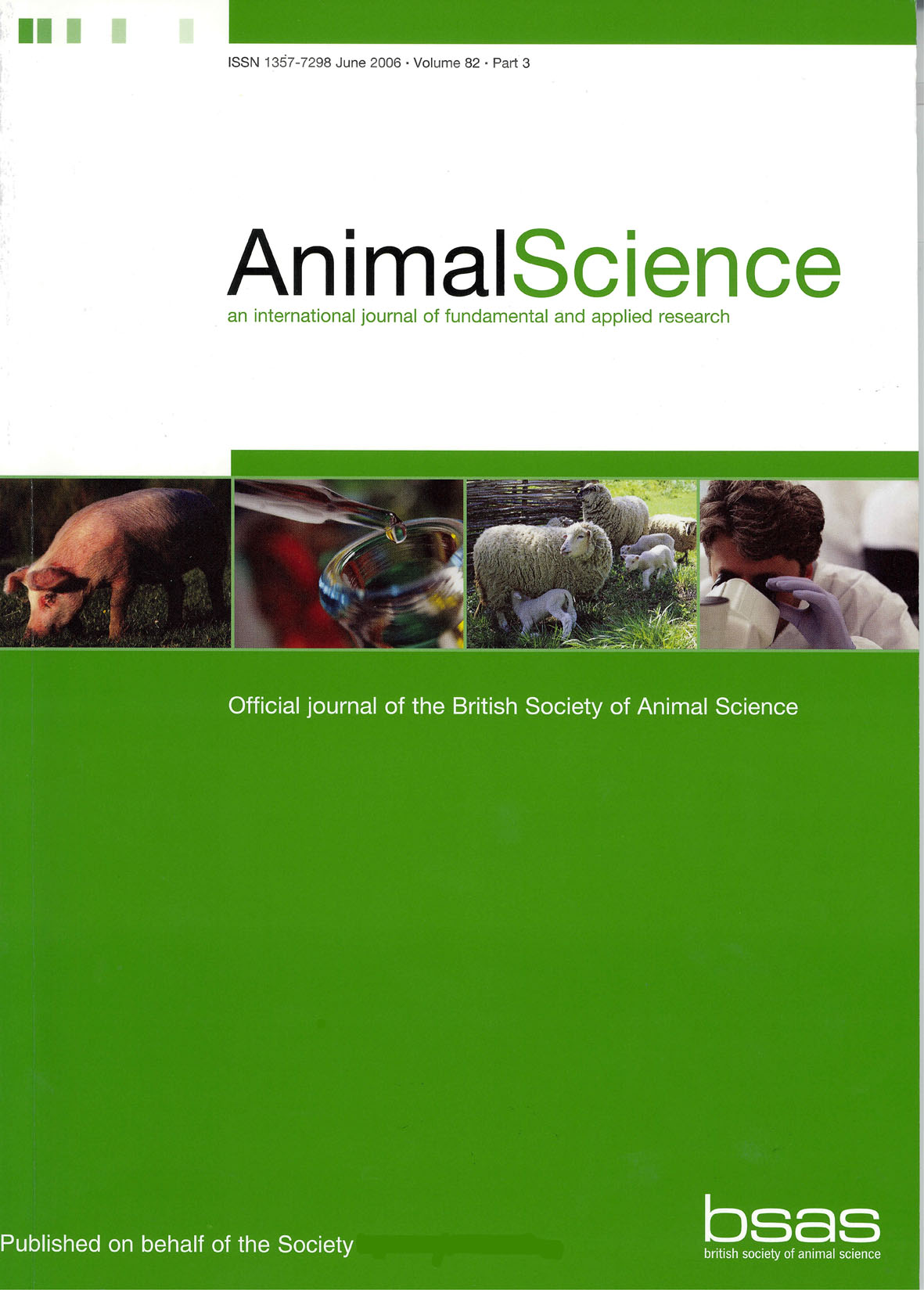Article contents
Protein, acetate and propionate for roughage-fed lambs. 2. Nutrient kinetics
Published online by Cambridge University Press: 02 September 2010
Abstract
Thirty-six wether lambs were given food hourly consisting of mature chopped oaten hay, sprayed with 10 g urea per kg hay. A pelleted supplement was given containing 0 or 75 g/day fish meal and 0 or ca. 1·5 MJ/day gross energy as acetate or propionate in a 2 × 3 factorial design. Dry matter (DM) digestibility, nitrogen retention and urinary allantoin excretion were determined over 7 days. Tissue protein kinetics were estimated using 15N-glycine. Net fluxes of acetate, bicarbonate and glucose were estimated with continuous infusion of 14C-acetate, 14C-bicarbonate and 3H-glucose respectively.
Intake of oaten hay (g DM per kg live weight per day) was reduced by supplementation. Live-weight gain was lower in lambs supplemented with propionate than in lambs given the basal diet only. Supplementation with fish meal increased DM digestibility, live-weight gain and wool growth. Daily excretion of urinary allantoin did not differ between groups of lambs. Nitrogen retention and protein flux were reduced in lambs supplemented with acetate or propionate and were increased in lambs given fish meal. Plasma acetate concentrations were higher for lambs supplemented with acetate. However, net flux of acetate did not differ between groups of lambs. The net flux of glucose was increased by supplementation with propionate and with fish meal. Plasma levels of β-hydroxybutyrate were reduced in lambs supplemented with propionate.
Availability of propionate and glucose were not limiting live-weight gain in these lambs. Also, a high ratio of acetate to propionate did not reduce the apparent efficiency of nutrient use.
- Type
- Research Article
- Information
- Copyright
- Copyright © British Society of Animal Science 1993
References
- 4
- Cited by


